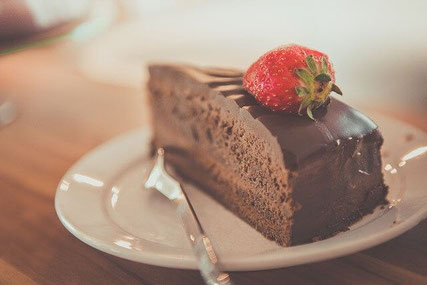
Would you be happy if someone told you your life would be exactly the same 10 years from now? Probably not; most people recoil at the thought. At the same time, people are often afraid of change. What’s going on?
Change can be scary. Many people choose to keep things as they are. There’s even a term for it in psychology – status quo bias. Studies have found people are more inclined to choose the status quo, to choose what’s familiar. To give an extreme example, the authors of one famous study referred to a colleague who ate the same lunch every day for 26 years – a ham and cheese sandwich on rye bread at a local restaurant. As I say, that’s extreme, but studies have found that when offered different sandwich options for lunch, people are inclined to choose one they have eaten before. Similarly, research has found people are inclined to stick with their current medication even when offered a new and better medication. This status quo bias means people often go the same place on holiday, eat the same food at their favourite restaurant, stick with the same bank, the same utility provider, and so on.
Why? Loss aversion, to use another term used by psychologists, is at the heart of this “better the devil you know” attitude. Multiple studies have found we are hard-wired to try and avoid losses, whether they are financial losses or emotional losses. The fear of a loss is much greater than the hope of a gain. As a result, when faced with a decision that involves change, we are much more likely to dwell on the potential negatives than the potential gains. End result: we stick with the status quo.
Linked to this loss aversion is a desire to avoid regret. What if you order a new sandwich and dislike it? That would be a source of regret (“I should have ordered my usual sandwich”), so you stick with what’s familiar.
SUNK COSTS

Additionally, there is what’s known as the sunk cost bias. What’s that? Well, imagine you ordered a big chocolate dessert after a large meal in a restaurant. After a few bites, you realise you are stuffed and don’t want to eat any more of it. Thing is, you’ve already paid for the dessert. Do you stop eating, or try and finish it? Many people will eat the dessert because it seems like a waste to not eat something you’ve paid for – even though you don’t actually want to eat it.
Similarly, you might continue watching a boring film you’ve paid to see at the cinema; you might keep reading a boring book because you’ve already spent hours reading the first half of it; you might stick with all kinds of activities because you have invested time on them, even though they don’t actually make you happy.
Or, to give more stark examples, you might stick with a toxic job because you invested so much time and money studying and climbing the career ladder. You might stick with a poor relationship because you’ve been together for years and you can’t face calling it quits after all this time. Instead of cutting your losses and trying something new, you might stick with what’s familiar – even though it doesn’t work for you.
These kind of actions often stem from a desire not to waste; when you put time and effort into something, it’s hard to walk away. This is all very human, but it can be dangerous; this is how a few years of unhappiness can end up becoming a lifetime of unhappiness.
Ask yourself: are you putting up with unhappiness because you are afraid of uncertainty? Is this fear of change causing you to lose out on other opportunities – relationships, studies, travels, work?
You can gradually become more comfortable with the idea of change simply by aiming to do something new every day – eating something different for dinner, ordering a different drink when out, walking somewhere new, driving somewhere new, trying out a new activity, and so on.
Yes, change can be scary, but it can also be revitalising. Things not changing – of everything remaining the same, no matter how stale – is often a much scarier prospect.
(First published in Southern Star, September 17, 2020)